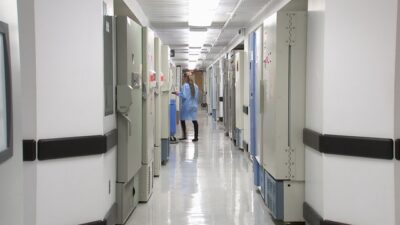Kristina Jenei is on a mission to improve health literacy, which speaks to a patient’s ability to make informed health decisions for themselves and others. As a former nurse turned researcher with the World Health Organization, Jenei has been tasked with changing the way nurses approach health literacy. She said it’s about more than just telling patients what is good for them. It’s about making sure they understand the information they receive, so they can apply it to their own situation.
“In public health we tend to tell people what to do,” Jenei said, but a lot of that info isn’t getting through to patients. “As a nurse you may see people coming in with diabetes, and we tell them to control their blood glucose, but it often doesn’t work. We need to think about why that type of education we’re giving them doesn’t work, and it’s likely because it’s disconnected from that person’s way of life.”
The U.K. is currently facing a health literacy crisis. Statistics from Health Education England show that just 43% of adults can understand written health information. And the country’s National Health Service says patients with lower levels of health literacy have significantly worse health outcomes across a number of indicators. They are more likely to engage in unhealthy behaviors and they are less able to manage chronic health conditions.
Jenei believes nurses are on the front lines of health literacy and that they have a duty to make sure their patients understand the information they receive.
“Asking open questions, practicing empathy, trying to understand why the other person is the way they are; nurses are already really good at this,” she commented. “Having more of that open, non-judgmental conversation with patients can really get them to start critically thinking about why they act in the way they do in regard to their health.”
Her work is influenced by the teachings of Brazilian philosopher Paolo Freire, who argued that healthcare providers shouldn’t view patients as “empty vessels waiting to be filled with knowledge.”
Jenei said nurses should be ready to adjust the consultation process to better accommodate the patient’s individual needs. If patients are having trouble following the latest health recommendations, providers can engage with the community to better understand why these problems persist.
She originally worked with substance abuse patients as a nurse before getting involved in health policy.
“I felt at the time there was this sort of revolving door in acute care. I saw the same people over and over, but there were loads of services for people experiencing homelessness and addiction issues. Yet, every time they would come into the hospital, we would discharge them with the same plan. There was a disconnect between what we were saying and the person,” she said of her experience.
The U.S. has a health literacy problem of its own. The Center for Healthcare Strategies estimates that nearly 36% of adults in the country have low health literacy. And low health literacy is estimated to cost the U.S. economy up to $236 billion every year due to preventable medical errors, increased rates of illness and disability, and wage losses.
















